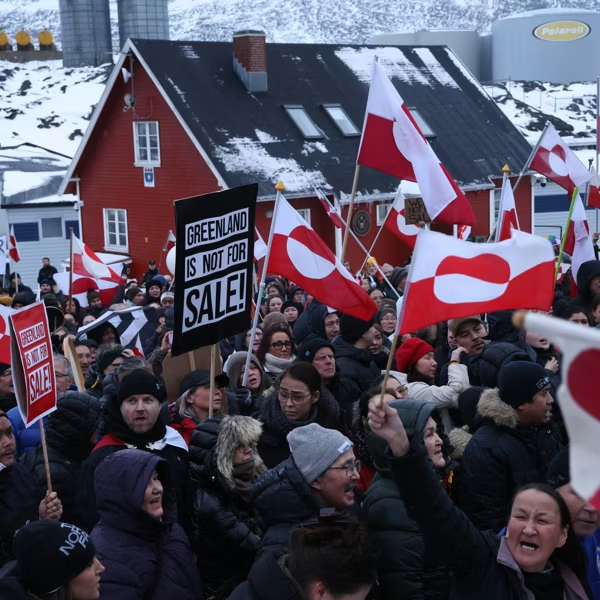Great minds think alike. And you probably thought the only thing those two great minds had in common was their love of hydroxychloroquine and their enthusiastic support for using it to combat the coronavirus. As Trump explained some weeks ago, during the period he was taking the drug, he'd received lots of letters "from people who support my use of the drug." Letters from "people" is clearly of more importance to Trump than medical information from experts. And in that respect, we learned that President Jair Bolsonara of Brazil and Trump have a lot in common.
In mid-May Brazilian Health Minister, Nelson Teich, resigned from Mr. Bolsonaro's cabinet. He was the second health minister to resign within a 30-day period. Among other reasons, each man resigned because of Mr. Bolsonaro's insistence that the use of hydroxychloroquine to treat the coronavirus be expanded. What we have since learned is Trump and Mr. Bolsonara share a concern for the environment and the way in which it can have adverse effects on the economy.
In January Trump EPA promulgated a new rule called: "The Navigable Waters Protection Rule." Under that rule many wetlands, streams and similar waterways formerly protected by the Clean Water Act will no longer be entitled to protection from pollution. According to the current EPA administrator the rule protects the environment and waterways "while respecting the states and private property owners." Not everyone agrees that it protects the environment and waterways. The former director of the Office of Science and Technology in EPA's office of Water called the new approach "scientifically indefensible and socially unjust." The new rule went into effect on June 23, 2020. The new rule was not the only trumpian attack on the environment in 2020.
On April 30, 2020, the EPA enacted the Safer Affordable Fuel-Efficient Vehicles rule that a spokesperson for the EPA said would, among other things, improve the U.S. fleet's fuel economy." In typical trump like fashion, it improves fuel economy by lowering the requirement for fuel efficiency in new vehicles for model years between 2021 and 2026. Under the fuel efficiency standards required by standards put in place by the Obama administration fuel efficiency in new vehicles had to be increased by nearly 5 percent. Under Trumpian rules that standard has been lowered to 1.5 per cent. As Trumpites explained, with the lower standards cars will be more affordable.
In mid-April Trumpsters weakened regulations on the release of mercury and other toxic metals from oil and coal fired power plants. In addition to that, and during the three years they have been empowered, Trumpsters have, among other things, loosened curbs on automobile tailpipe emissions, weakened rules to cut planet-warming carbon dioxide emissions from coal-fired power plants, and made it easier for coal companies to dump debris in streams.
On June 7, 2020 Trump issued an executive order weakening the National Environmental Policy Act. That Act is designed to protect the environment by requiring all branches of government to consider the effects on the environment of any major federal action such as building highways, pipelines, and other infrastructure projects. The order directs agencies "to ignore environmental laws to speed up federal approval for new mines, highways, pipelines, and other infrastructure projects." All in all, and for good reason, those concerned about the environment are not among trump's most enthusiastic supporters. And in dealing with environmental matters President Bolsonaro's affinity for Trump approach manifests itself.
Since becoming president of Brazil in October 2018 President Bolsonara has not only followed in Trumpian footsteps by advocating for the use of hydroxychloroquine. He has also followed in the footsteps of Trump in assaulting the environment. Since becoming president he has presided over a rise in deforestation in the Amazon. He has relaxed rules designed to prevent illegal logging and illegal gold mining in the rain forest. Deforestation in 2019 hit its highest level since 2008. Between August 2018 and July 2019 deforestation rose by 34%. Between January and April of this year 464 square miles of amazon tree cover was removed. Reportedly fifty percent of that tree cover was on public lands. The amount of illegally logged timber seized by Brazil's main environmental protection agency fell by nearly 64% from 2018 to 2019.
Inspired by Trump, President Bolsonaro has taken one further step to model himself after Trump. In early June 2020 he announced that he was considering withdrawing from the World Health Organization just as his trumpian role model had announced pm May 29, 2020 that the United States was going to do. As President Bolsonara explained: "I'm telling you right now, the United States left the WHO, and we're studying that, in the future. Either the WHO works without ideological bias, or we leave, too." As observed at the outset, great minds think alike.




